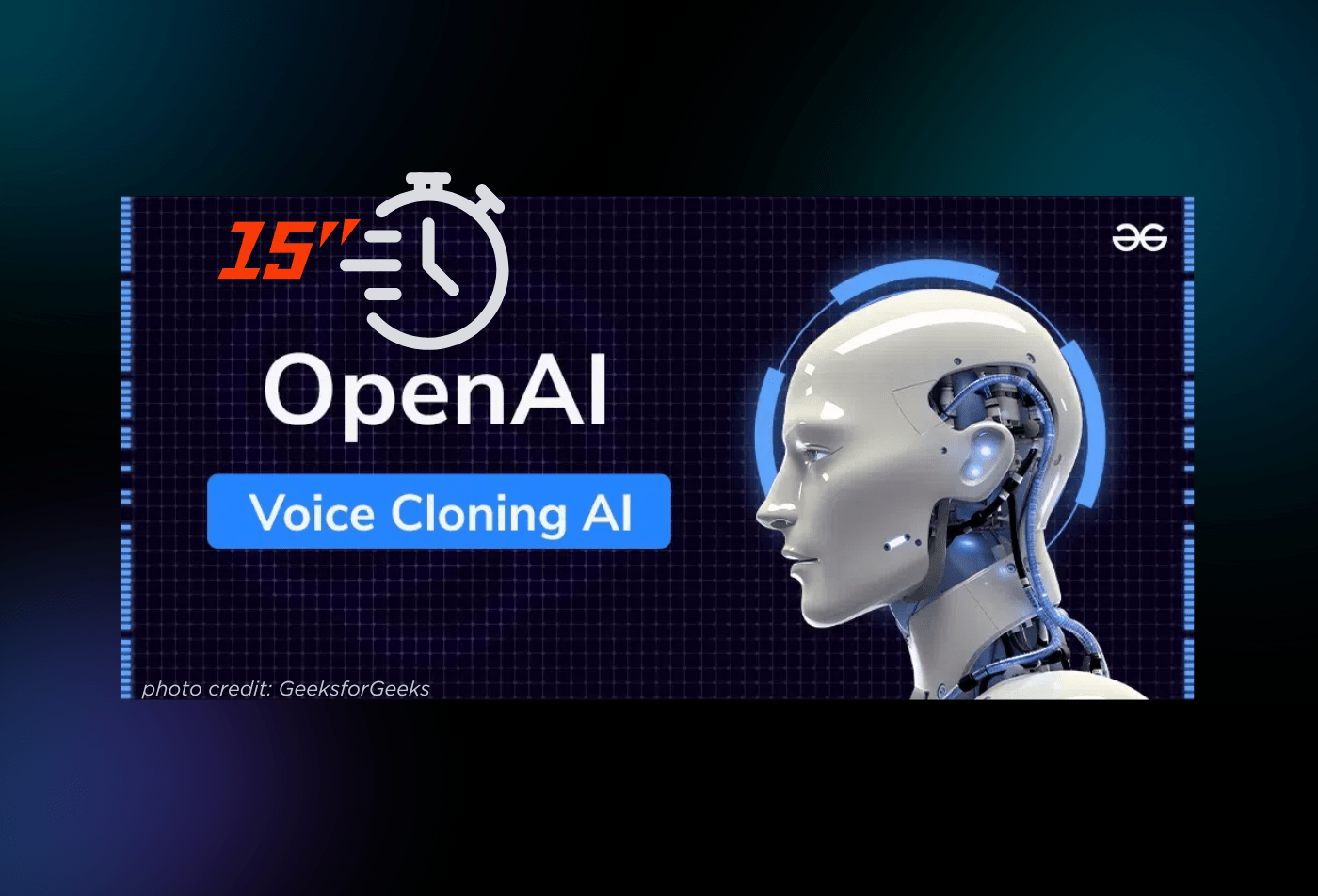OpenAI’s Voice Cloning AI Model Requires Just a 15-Second Sample to Operate

OpenAI is rolling out limited access to its text-to-voice generation platform called Voice Engine, as reported by The Verge. This innovative platform can synthesize a voice based on a 15-second audio clip, enabling the creation of realistic-sounding artificial voices. These AI-generated voices are capable of reading text prompts in multiple languages and have potential applications across various industries, according to OpenAI’s blog post.
Among the companies granted access to Voice Engine are Age of Learning, HeyGen, Dimagi, Livox, and Lifespan. OpenAI has showcased samples demonstrating how Age of Learning is utilizing the technology to produce pre-scripted voice-over content and deliver personalized responses to students generated by GPT-4.
Voice Engine development commenced in late 2022 and has since powered preset voices for text-to-speech APIs and ChatGPT’s Read Aloud feature. Jeff Harris from OpenAI’s Voice Engine product team revealed to TechCrunch that the model was trained on a combination of licensed and publicly available data. The platform will be limited to approximately 10 developers, according to OpenAI’s disclosure to the publication.
While AI text-to-audio generation continues to advance, voice generation has received less attention due to various concerns, as highlighted by OpenAI. However, companies like Podcastle and ElevenLabs are exploring AI voice cloning technologies, as previously explored on The Vergecast.
Simultaneously, the US government is taking measures to regulate unethical applications of AI voice technology. The Federal Communications Commission recently prohibited robocalls utilizing AI voices after instances of spam calls impersonating President Joe Biden’s voice.
OpenAI’s partners have committed to adhering to usage policies that prohibit impersonation without consent, requiring explicit and informed consent from original speakers, and disclosing AI-generated voices to listeners. To ensure accountability, OpenAI has implemented watermarking on audio clips and actively monitors their usage.
OpenAI suggests several measures to mitigate risks associated with such tools, including phasing out voice-based authentication for bank accounts, implementing policies safeguarding the use of individuals’ voices in AI, enhancing education on AI deepfakes, and developing AI content tracking systems.



